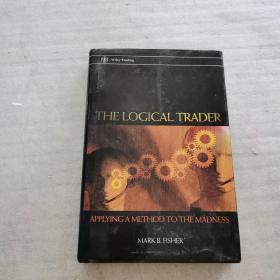
The Logical Basis of Metaphysics
¥ 350 3.8折 ¥ 930.47 九五品
仅1件
作者Dummett, Michael
出版社Harvard University Press
出版时间1993-12
装帧其他
上书时间2021-07-02
- 最新上架
商品详情
- 品相描述:九五品
图书标准信息
- 作者 Dummett, Michael
- 出版社 Harvard University Press
- 出版时间 1993-12
- ISBN 9780674537866
- 定价 930.47元
- 装帧 其他
- 页数 366页
- 【内容简介】
- Michael Dummett's new book is the greatly expanded and recently revised version of his distinguished William James Lectures, delivered in 1976. Dummett regards the construction of a satisfactory theory of meaning as the most pressing task of contemporary analytical philosophy. He believes that the successful completion of this difficult assignment will lead to a resolution of problems before which philosophy has been stalled, in some instances for centuries. These problems turn on the correctness or incorrectness of a realistic view of one or another realm--the physical world, the mind, the past, mathematical reality, and so forth. Rejection of realism amounts to adoption of a variant semantics, and often of a variant logic, for the statements in a certain sector of our language. Dummett does not assume the correctness of any one logical system but shows how the choice between different logics arises at the level of the theory of meaning and depends upon the choice of one or another general form of meaning-theory. In order to determine the correct shape for a meaning-theory, we must attain a clear conception of what a meaning-theory can be expected to do. Such a conception, says Dummett, will form a base camp for an assault on the metaphysical peaks: I have no greater ambition in this book than to set up a base camp.,
相关推荐
-

THE LOGICAL TRADER
九品北京
¥ 500.00
-

法商管理范式建构:法商管理的逻辑基础:the logical basis of legality-business management
全新广州
¥ 48.05
-

法商管理范式建构:法商管理的逻辑基础:the logical basis of legality-business management
全新广州
¥ 55.99
-

法商管理范式建构:法商管理的逻辑基础:the logical basis of legality-business management
全新北京
¥ 46.00
-

法商管理范式建构:法商管理的逻辑基础:the logical basis o eality-business management
全新天津
¥ 52.59
-

THE TREASURY BOND BASIS
九品北京
¥ 86.00
-

THE TREASURY BOND BASIS
九品北京
¥ 288.00
-

THE TREASURY BOND BASIS
九品北京
¥ 260.00
-

THE TREASURY BOND BASIS
九品上海
¥ 198.00
-

法商管理范式建构:法商管理的逻辑基础:the logical basis of legality-business management9787509679142
全新广州
¥ 48.92
— 没有更多了 —












以下为对购买帮助不大的评价